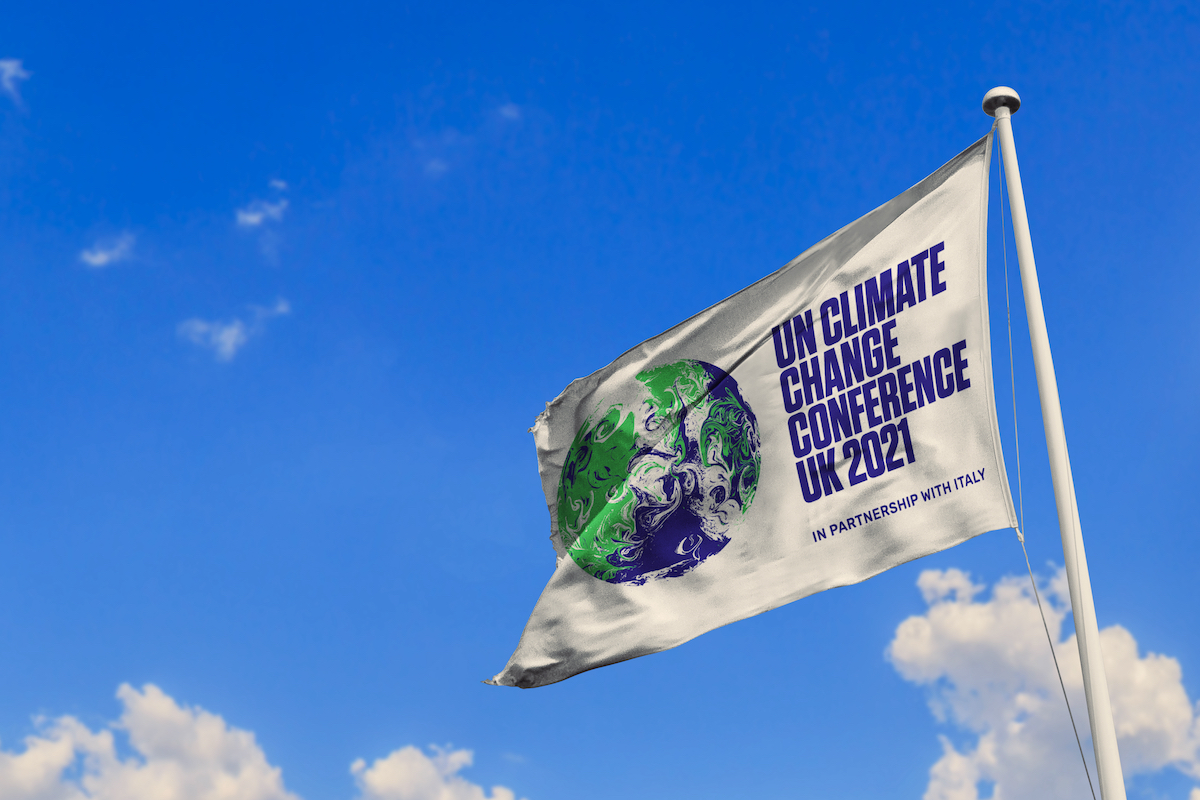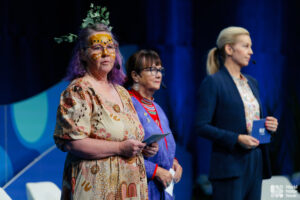COP26 has 4 goals. Water is central to all of them
Water is crucial for achieving all the four official goals of the United Nations Climate Change Conference COP26, starting 31 October. SIWI will have a strong presence at the event – here are some of the actions we want to see.
The climate crisis is a water crisis. The IPCC report released earlier this year declares changes in the water cycle as one of the most critical expressions of climate change. The window of opportunity is quickly closing on meeting the commitments of the Paris Agreement of capping global warming at 1.5 degrees. At the upcoming COP26, water must be a priority for efficient and meaningful climate action.
Secure global net zero as soon as possible and keep 1.5 degrees within reach
Water needs to be a central part in all climate mitigation strategies and implementation. SIWI wants to see freshwater at the forefront of all countries’ Nationally Determined Contributions (NDCs) because the vast majority of mitigation measures are impacted by water or have an impact on water. We cannot reach net zero without recognizing that water is central to protecting some of the largest carbon sinks such as wetlands, oceans and forests. A crucial action is protection – many of these landscapes and bodies of water are facing degradation, and now is the time to protect, restore, and prevent further degradation of these ecosystems to ensure their maximum carbon storage and capture capacity.
If we do not manage our water resources wisely, there may be dire consequences that can hinder the crucial shifts of our global energy and agricultural systems towards climate neutrality. This is particularly true in low-income countries facing water insecurity.
We cannot reach net zero without considering water – and we need to get there as soon as possible.
Adapt to protect communities and natural habitats
To achieve inclusive adaptation, water-related Nature-Based Solutions (NBS) must play a vital role. Healthy wetlands act as a flood and drought defense for villages as well as megacities and securing agricultural yields can only be done by adapting land management to changes in the water cycle. This includes growing drought resilient crops and adopting rain harvesting, along with smart irrigation techniques.
Importantly, for adaptation measures to be inclusive and truly protect local and vulnerable communities, the rights of indigenous, women, youth, and other under-represented communities must be respected. For instance, any natural environment used for NBS should be done so respecting the United Nations Declaration on the Rights of Indigenous Peoples (UNDRIP) and related declarations and statues.
Mobilize finance
The Covid crisis has shown that the governments of the world are able to take collective action in the face of a global emergency. It is time for the same urgency to be shown towards the climate crisis – and for finances to flow toward climate efficient solutions that are proven to work. Science shows that nature can help with at least 30 per cent of the mitigation of greenhouse gases needed by 2030, still it is only receiving about 3 per cent of global climate finance. Green reform should not be considered a cost. It is a necessary investment to avoid catastrophic events that are going to be detrimental to national economies. Not only is it a cost-saving “move” – investing in climate has been shown to increase long-run GDP by up to 5 per cent.
Climate finance also has the largest role to play in climate justice – it is time for developed countries to fulfil the financial obligations agreed in the Paris Agreement, mobilizing at least US$ 100 billion annually through 2025.
Work together to deliver
Climate action must be just, swift, and effective, and this can only be done when all voices are heard. SIWI believes that water is an ally for inclusive and just climate action.
Shared water resources act as a bridge between countries and stakeholders that otherwise may not have incentives to work together. When actors are dependent on the same water systems, they are forced to adopt holistic approaches and identify areas of collaboration. By focusing on water solutions to the climate crisis, we are incentivizing countries, communities and corporate stakeholders to work together to deliver on adaptation and mitigation as well as sustainable development as a whole.
We hope to see you in the Water Pavilion in Glasgow or online via waterforclimate.net. You can follow our work on Twitter, LinkedIn, Facebook and Instagram and by following the hashtag #Water4Climate. Below is a list of SIWI staff present in Glasgow. If you want to get in touch with us, please contact Jennifer Jun at jennifer.jun@siwi.org, Sarah Breslin sarah.breslin@siwi.org or Tove Lexén tove.lexen@siwi.org. For press enquiries contact Maria Sköld maria.skold@siwi.org.
Staff present at COP26:
Sarah Breslin 31 Oct – 12 Nov
Jennifer Jun 31 Oct – 12 Nov
Tove Lexén 31 Oct – 12 Nov
Georgette Mrakadeh-Keane 31 Oct – 12 Nov
Maria Sköld 31 Oct – 12 November
Torgny Holmgren 1 Nov – 6 Nov
Ruth Mathews 2 Nov – 6 Nov
We have several members of staff speaking at virtual events at the Water Pavilion and throughout the COP26.








